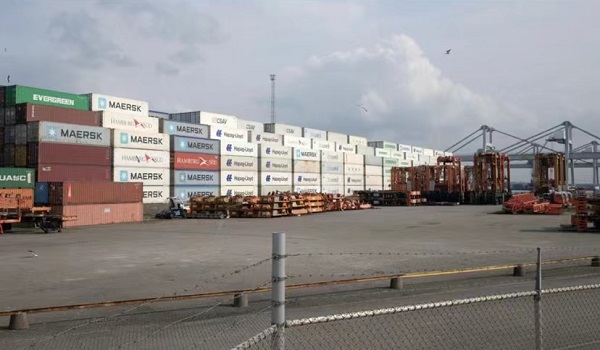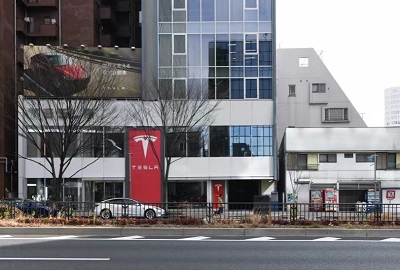Tesla seems to be trying to hedge global supply chain risks.
New energy is now a highly competitive market, although electric vehicle and battery makers are in demand globally
From India to Indonesia, Elon Musk is scouting for sites to put more Tesla cars on roads around the world. Access to raw materials has become critical at a time when the world is mired in supply chain chaos. He was right.
After lobbying India to ditch strict manufacturing policies and prohibitive import tariffs, Musk will meet with Indonesian President Joko Widodo and visit several parts of the country.
Shrewd bet & missed opportunity
Indonesia is the world’s largest producer of nickel, a key material in batteries. It was a shrewd bet for Tesla and Indonesia, and a missed opportunity for India.

Indonesia has attracted several battery and car makers in recent months through various incentives to achieve its ambitious goals for the electric vehicle industry. Cabinet ministers said they wanted investment across the supply chain.
Manufacturers are investing billions of dollars as Indonesia rolls out pro-business policies to support the goals of the electric vehicle industry. LG Energy Solution will join other companies to invest about US$9 billion to build a supply chain from mining to manufacturing in Indonesia. The company will also partner with Hyundai Motor to build a battery factory.
CATL ‘ s investment
At the same time, CATL, the world’s largest battery pack manufacturer, will invest in a battery project totaling nearly US$6 billion. The project partner is the Indonesian state-owned company PT. Up the value chain, China’s Huayou Cobalt and PT Vale Indonesia Tbk announced last month that they would cooperate on Huayou Cobalt’s fifth nickel project in Indonesia.
Companies in the electric vehicle supply chain have moved into Southeast Asia’s largest economy, illustrating how important it is to be close to the source of raw materials for production. If the logistics chaos and delays of the past year have taught the industry anything, it’s that geographic proximity matters.
Even if global supply and demand are nominally in equilibrium, the transportation of industrial products has become expensive, slow and cumbersome.

Tesla knows this. The company has established large manufacturing centers in China and Germany, two countries well known for their industrial manufacturing prowess and incentives for electric vehicle sales. Tesla has boosted its global market share following production troubles at its U.S. factories.
Today, the company is looking to acquire raw materials to produce its own batteries, but has no plans to buy mines or enter new business areas. Whenever a problem is found in the production process, Musk will look for a solution. Tesla is actually building discrete supply chains around the world.
There was no need for auto companies to travel to Indonesia. Even in high-yield years, Indonesia’s car production is only about 1 million, and it is dominated by small cars from Japanese manufacturers. Compared to markets such as China and the United States, Indonesia’s auto market is dwarfed, and the share of electric vehicles is negligible.
In addition, Indonesia’s geography is not ideal for building electric vehicle charging stations and infrastructure connectivity, although the government aims to make the capital Jakarta and tourist destination Bali a demonstration center for green transportation.
Potential sales in the Indonesian market do not materially affect Tesla. However, Indonesia is making itself a fertile ground for large-scale investment by leveraging existing resources, friendly policies towards the EV industry and the right publicity.
By then, Indonesia will be able to boast of its global-scale battery-manufacturing supply chain, a now much-touted honor even the US is vying for. In the future, private investment in battery manufacturing will only attract more attention.
India, on the other hand, is still hesitant to abolish tariffs. Government officials made solemn and bold statements about their ambitious goals and their desire to introduce Tesla to the Indian market. They even said that manufacturing in India would benefit Tesla.
Tesla & India
However, customers who have already placed orders are still waiting, and it’s unclear how Musk’s company will get support. Now, given the hurdles, it’s a question of whether Tesla will enter India.
This might also be a good choice. Building a production line is now something companies don’t want to touch, especially when they’re struggling to get product parts, solve logistics problems, and incur high shipping costs. India’s efforts to transition to electric vehicles have made only sporadic progress, with unclear commitments.
Toyota Motor Corp., one of the world’s largest automakers, lags behind in electric vehicles. The company has pledged to invest $624 million to manufacture EV-related components through its existing Indian subsidiary. But it’s unclear who will buy the parts.
Even Maruti Suzuki India Ltd., India’s major automaker, has no plans on electric vehicles before 2025. Combined with policy restraints and punitive taxes, India has almost excluded itself by driving up investment costs in its domestic market.
Electric vehicle and battery makers are in demand globally, and attracting them will require far more than rhetoric and political ambition, but also making existing resources easy to use and coherent policies acceptable to manufacturers.
It is true that India has some homegrown EV models, but the Indian auto market is still a potential market, as long as people want to buy a Tesla Model (for example), or there are enough charging facilities to make EVs more convenient to use.
Just as China made Tesla a global company, Indonesia can do the same for its battery supply chain. In the process, manufacturing costs will become more affordable, ultimately making EVs cheaper as well.



